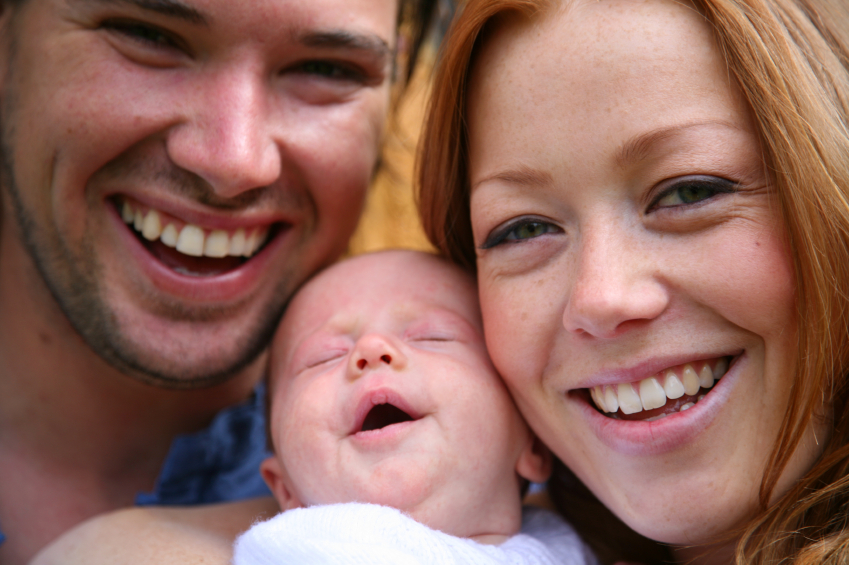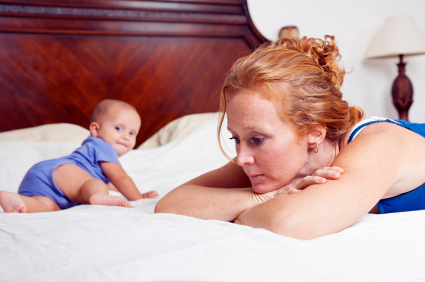
About DadPad, Being a Dad, Equity and Equality, Key Content, Long Read
About DadPad: DadPad as a feminist concept
Posted on 28th August 2020
This week, we are continuing our occasional #AboutDadPad series of blogs, providing more information on the background of and ethos underpinning the DadPad resources. As Wednesday just gone was Women’s Equality Day, we thought this was a great chance to address an issue that we occasionally have raised with us: why don’t we rename our resource ‘the Partner Pad’, so as not to be discriminatory against parents who are not ‘dads’?
Our short answer to this is really quite simple: the DadPad was written specifically and unapologetically in order to engage and include dads-to-be and new dads, and is not intended to be inclusive of any other parent demographics. It was written for – and with input from – male dads, in order to meet their specific needs and requirements.
However, at the same time, we do not believe that the DadPad is prejudiced or discriminatory in any way, shape or form. In fact, we believe that – as well as there being good, solid reasons for producing a resource which is tailor-made for male dads – the idea behind the DadPad can actually be seen as having huge benefits for all.*
Equality
Women’s Equality Day is held every year on 26th August, commemorating the day in 1920 when women in the USA gained the right to vote (in the UK, full and equal voting rights for women were not obtained until the enactment of the Equal Franchise Act of 1928). This means that 2020 is the centenary of that event.
Back in March, the world also recognised International Women’s Day, and this year’s theme was #EachforEqual, encouraging us to consider the following idea:
- An equal world is an enabled world. How will you help forge a gender equal world? Celebrate women’s achievement. Raise awareness against bias. Take action for equality.
We like to think that, by giving dads the tools, skills, information and confidence that they need in order to be hands on and equal in a caregiving role to their child, both men and women are being empowered and enabled. After all, as a mum, if you have a partner beside you who is capable, reliable, self-sufficient and appreciative of the fact that he is just as responsible as you for the child that the two of you have created, then that can only help both of you – as well, of course, as giving that child the best start in life…

Feminism
So, if we’re going to try and argue that the DadPad is a feminist concept, then we need to start by considering what we think ‘feminism’ means.
The first thing that we have to confess to you, though, is that we don’t consider ourselves to be any sort of experts on feminism as an academic theory. We have, though, read a few books, collectively undertaken years of study in all sorts of areas, experienced life, reflected and formed some opinions. We’re not saying that these are 100% bullet proof, but – at this moment in time – they make sense to us.
The definitions and explanations that we like – as parents of both a boy and a girl – are those that recognise feminism to be a positive thing for both women and men. In her book, How To Be a Woman, the brilliant Caitlin Moran identifies it as “the only word we have ever had to describe ‘making the world equal for men and women’.”
Robert Webb (comedian, actor, writer) continues this theme:
Feminism isn’t about hating men. It’s about challenging the absurd gender distinctions that boys and girls learn from childhood and carry into their adult lives. It’s an unloved word – and we should give it another chance.
It’s these ‘gender distinctions’ that we’re focused on. And it’s crucial to remember that, despite the fact that men have been the dominant gender throughout history, this hasn’t brought only benefits, happiness and success to men; men are as much the victims of perceived and entrenched ‘gender distinctions’ as women (Robert Webb, How Not to be a Boy, p139):
Feminism has had some success in challenging the restrictive stereotypes of what a girl or woman is supposed to be like. What I’m after is extending that awareness to the half of the population who might still be under the impression that gender conditioning didn’t happen to them because they’ve got a Y chromosome.
Finley Felling (2016) appreciates this:
Despite frequent and misinformed claims to the contrary, the movement to remove gender barriers and expectations helps us all.
Those barriers and expectations are often difficult to dispense with – after all, they’ve been passed down for centuries, across generations – but this is no excuse not to rise to the challenge. The pressure that these expectations put on new parents – both mums and dads – can have enormous, negative knock-on effects, and also run the risk of denying your child the best opportunities.
PROBLEM 1: The traditional male role
Both Moran and Webb are keen to make the point in their writing – as are we – that feminism isn’t about pitting men against women, so that one becomes ‘the winner’ and the other ‘the loser’: it’s more about everyone fighting ‘the patriarchy’. This concept is traditionally defined as a society where men hold more power than women, but Carole Pateman (1988, p207) has stated: “The patriarchal construction of the difference between masculinity and femininity is the political difference between freedom and subjection” -in other words, the continuation of ‘the patriarchy’ has a negative effect on everyone.
This is the point that we want to look at – the idea that sexist attitudes and feminism aren’t “a ‘man vs woman’ thing” (Moran, 2011, p133) or “…about men versus women; it’s about men and women versus The Trick” (Webb, 2017, p302). Webb explains (2017, pp301-302) that:
‘The Trick’ is the family code-word for the incoming tide of gender bulls**t that [Webb’s daughters] and their friends (including the boys) will spend their lives wading through. The idea that boys and girls, men and women, have different roles to play according to the different contributions they make to a shared reproductive system is one that they are going to have to deal with whether we like it or not. So they might as well have a name for it. You may think that introducing the idea of ‘the patriarchy’ into the minds of small children is the ultimate in liberal overkill… The Trick is dangerous for girls. And… it’s dangerous for boys too.
He further clarifies (Webb, 2017, pp237-238):
Feminists didn’t create these circumstances. Neither am I saying that men have gone along with this stuff like a bunch of passive idiots. I’m saying it’s difficult to resist because it hides in plain sight. It’s everywhere: a system of thought and a set of invented and discriminatory practices in our laws, culture and economy that feminists call the patriarchy. Feminists are not out to get us. They’re out to get the patriarchy. They don’t hate men, they hate The Man. They’re our mates. The patriarchy was created for the convenience of men, but it comes at a heavy cost to ourselves and to everyone else.
The problem is, of course, that long-held attitudes are always going to be difficult to defeat (Moran, (2011), p134):
Men are accustomed to [women] being runners-up or being disqualified entirely. For men born pre-feminism, this is what they were raised on: second-class citizen mothers; sisters who need to be married off; female schoolmates going to secretarial school, then becoming housewives. Women who disengaged. Disappeared… Even those men born post-feminism, raised on textbooks and marches and their own mothers leaving each morning for the office, however much they might believe in the theoretical equality of women, and respect those around them, they’re scarcely unaware of the great sweep of history that went before. A quiet voice inside – suppressed, but never wholly silenced – says, “If women are the true equals of men, where’s the proof?” And it is not just a voice inside men. It is inside women, too.
And let’s also just stop a minute and read that paragraph again, but this time with the words changed; imagine that it’s been written from the view of “Women being accustomed to [men] being runners-up or being disqualified entirely” as caregivers… We mustn’t forget the fact that feminism is about achieving equality for us all.
When you consider that it was only as recently as 1969 that Bowlby was suggesting that a “father’s function in infancy is to provide for wives so they can devote themselves unrestrictedly to the care of the infant” (Fellows, 2019, p16), we can appreciate how times have altered, but – at the same time – there’s still so much more change that needs to happen…
PROBLEM 2: Fathers in maternity services
Aside from the ingrained views and prejudices within wider society, another hurdle faced by men wanting to have an equal role as a parent has traditionally also been within the health services themselves. A report from the Fatherhood Institute in 2018 found that – even though NHS policy requires there to be ‘family-centered’ maternity care – “there is no evidence of systematic implementation of these policies, nor of any monitoring or evaluation” (p6). Further, “[o]ther than during the birth itself, the father’s position is little different from that of visitor; and when information about him and his family is requested, the mother is asked for it” (p6).
The Fatherhood Institute research found that maternity services didn’t ask:
- 82% of dads-to-be/new dads about their mental health
- 78% about their physical health
- 65% about their roles
- 48% about smoking…
… and 56% weren’t called by their name.
This is all despite the fact that:
- 100% of fathers are present at conception;
- 99% are present at an ultrasound scan;
- 94% attend at least one routine antenatal appointment; and
- 98% attend at some point during labour and birth, with 91% there from start to finish.
Further, research by Baldwin et al (2018) found that: “Men were often not viewed or treated as equal partners and lacked acknowledgment or involvement by health professionals during their transition to fatherhood” (p2120).
So, what are the difficulties and dangers of allowing the status quo to persist?

ISSUE 1: The mental health impact
Having a new baby is hard – it’s going to change and put pressure on your relationship; it’s going to exhaust you both, mentally and physically; it’s going to change your whole life; and it’s going to alter the hormones that whizz around your body. In short, if it didn’t have a bit of an impact on your mental health, you’d be surprised. When we wrote our blog post on dads supporting their own and their partner’s perinatal mental health last month, our expert contributors nearly all gave as their key piece of advice to a new dad the recommendation to talk to someone else – here’s Dr Andy Mayers’ suggestion:
Quite simply, don’t be afraid to talk about your mental health and then feel confident to seek that help. Keeping quiet and doing nothing will only make it worse.
It’s clear, though, that one of the biggest negatives for men feeling duty-bound to fulfil a traditional, masculine role is the impact that this can have on his mental health. Finley Felling (2016) explains:
Society encourages men to hide their feelings, which often go unspoken until it is too late. This pressure to be emotionally neutral can make basic worries or even a simple “I love you” tough to squeeze out. These all too familiar situations disproportionately affect men, but the concerns are bound up with the aims of feminism.
Further, if the health professionals around the family during the perinatal period aren’t focusing equally on the mental health of both parents, serious consequences can arise. We know – from research findings – just how many new dads can be impacted by perinatal mental health concerns and how serious these impacts can be; it’s reckoned that about 10% of all new dads experience postnatal depression, compared with an estimated 5% of men in the wider population who will experience depression during a year.
Not only is this clearly bad news for the dad himself, but also his partner and their child. Again, there is a plethora of research evidence out there, but – to quote from one example – “children of fathers who have depression during the postnatal period are at increased risk of behavioural problems at age 3-5 years… [and] the association between paternal depression and child behaviour problems is stronger in boys than in girls.” (Ramchandani et al, 2005).
If we can engage men to know that being in touch with your feelings is not a bad thing – it’s not a ‘feminine’ thing, but is simply a ‘human’ thing – then we’re on the right path. Here’s Robert Webb (2017, p325) again:
Men will struggle to treat women as equals if we haven’t learned to look after ourselves; to recognise our feelings and take responsibility for our actions. We should remember what we knew all along: that we are allowed to be fully human, fully compassionate, fully alive in the moment and fully committed to friendship and love. Self-respect and kindness to others: that’s it. That’s how we restore freedom to the galaxy…

ISSUE 2: Pressure on both parents
Being a new parent is hard, whatever your gender and whatever your situation. There are new skills to learn, new experiences to deal with, new relationships to negotiate, and new pressures to experience. But it’s also where traditional expectations of role may slip in – perhaps subconsciously, in your head, or more explicitly, through messages that you receive from those around you. As ‘the man of the house’, you may suddenly feel that you now need to ‘step up’ and be the ‘breadwinner’, with your partner needing to take the lead on all things ‘childcare’.
But this is, of course, doing a huge disservice to all of you – dad, mum and baby. What’s to stop you being just as hands-on and involved as mum with all aspects of caring for and bonding with your baby? And what’s stopping mum from legitimately expecting to return to work as soon as she wants? Feminism would absolutely support this idea.
Fellows (2019) reported findings that a “well prepared partner and father has a positive impact on the mother, which can help promote a positive birth experience.” Studies have found, however, that one of the biggest hurdles faced by new dads in being properly involved and helpful has been a lack of information and support. Research from the Fatherhood Institute (2018) confirms that pregnant mums do want their partner as an active participant throughout the antenatal period, and respond positively when he is present at the birth. He has also been shown to play a vital role in supporting her post-birth, including in relation to her recovery, the success of breastfeeding and identifying whether her mental health is suffering. Brown and Davies (2014) and Baldwin et al (2018) have also demonstrated that dads definitely do want to get involved and want to be given the information, support and help needed in order to do this. Some examples of quotes from fathers involved in those research studies illustrate this point:
- When I said to a nurse I felt helpless she said enjoy the break and laughed like it was nothing to do with me.
- My wife was in tears and in pain. She was exhausted and I didn’t know what to do.
- It is really hard to see someone you love struggling and not to be able to do anything.
- I felt s**t scared. Having a new baby is a worrying time and I feel I lack a bit of confidence…
- I am also worried of not getting it right.
- …I’m worried I’m not going to be good enough, I’m not being good enough.
- I would look now to wanting more information about what to do when I’ve actually got it… even little things like what clothing, when you put it to bed, getting into a routine, even the basics, really.
Julian from DadPad expressed similar sentiments on our first blog post here, back in May 2017:
I felt useless at first, but then – with direction from my mother-in-law and my wife – I found useful things to do. It wasn’t easy, and I was left wishing for better guidance before my son arrived. There didn’t seem to be anyone focusing on me, making sure I did things right. If I got it wrong, there seemed to be a sense of disapproval, or disappointment, that I wasn’t up-to-speed and should have known better because I’d been shown a couple of times. A rocky start, but I felt a growing sense of confidence when I could support my wife.
Reading that, as Julian’s wife, always shocks me. Partly, of course, in terms of the disapproval that he felt, but also the expectation that I would instinctively know what to do, due to having just given birth to the baby, and would be required to give him guidance. To be honest, I was just as clueless as him at the start!
Again, this point is recognised in the Fatherhood Institute (2018, p8) paper, which recommends:
Pre-natal health education and information should be directed at men as well as women, and maternity services should be required to provide information directly to the father/woman's partner, rather than relying on the 'woman as educator'.
This is supported by Baldwin et al’s (2018) observation that: “The main barriers to new fathers accessing or receiving adequate support were related to the lack of resources aimed specifically at men.”
It’s worth noting that, not only will having an informed, confident and ‘ready to go’ dad help a new mum enormously as both struggle to get to grips with their new baby and the massive lifestyle change that comes with it, but there’s also evidence that the benefits extend beyond the home, too: Frith, 2016, reported on a survey which “found that where men play an equal or main caregiver role in childcare 47% of female partners had progressed their careers since having children [but]… where men played very little or a moderate role in childcare only 26% of female partners progressed their careers after childbirth.”

THE BENEFITS OF BEING A FEMINISM-SUPPORTING FATHER
Giving your child the best start in life…
It’s absolutely clear that being an involved dad is A Good Thing for your child. We know, from Dr Anna Machin, that dad has a unique role to play in the raising of his child:
In the first instance, the attachment between the mother and the child is inward-looking, exclusive, based on affection and care. The dad’s attachment is also, obviously, capable of being affectionate and caring but on top of this there’s an extra bit: his job is to challenge, to be the secure base from which the child goes out into the world to investigate what is going on. His role is to teach the skills – behavioural, linguistic, cognitive – that will enable that child to deal with life’s challenges, assess its risks, and leap over those hurdles; to deal with failure, but also with success. We live in the most complex social and technological world, and dad’s job is to turn the child’s face to that world and say: “Here is the world and I am going to teach you how to be successful in it".
Further, summarising research studies, Fellows (2019, pp16-17) reported that:
- …father/father figure involvement has a positive impact on child outcomes – socially, behaviourally and psychologically (Sarkadi et al, 2008);
- …children with involved fathers have shown improved outcomes in education, behaviour, health and emotional and social functioning (Opondo et al, 2017); but
- disengaged interactions between fathers and their children have been associated with an increase in child behavioural problems (Ramchandani et al, 2013).
Sarkadi et al (2007, p155) also noted that research had established that “boys with a highly engaged father had less behavioural problems during the early school years than boys with less engaged fathers during the preschool years… high father engagement in poor families (with stable marriages) predicted lower incidence of delinquency during the early adult years for both sexes… [and, in relation to babies born prematurely within a specific demographic] a highly engaged father predicted significantly higher IQ scores at 3 years of age… compared to those… whose fathers have not been playing with or caring for their children daily.”
…and becoming a feminist father?
Taking this a step further, being a dad that’s not only engaged and involved with his child, but also actively working to deconstruct gender stereotypes within his family – a feminist father, if you like – means that the next generation will find things even easier.
It’s all too easy in life to perpetuate and unwittingly-enforce prejudices – after all, we all have them – but being reflective and actively working to overcome them will reap huge rewards. As Felling (2016) notes, we’re often unaware of the impact that a throwaway comment could have – whether that’s teasing your daughter for ‘throwing like a girl’, mocking your son for engaging in what you might consider to be ‘girly hobbies’, or telling a child of either gender to ‘man up’. Valenti (2014) adds:
Feminist fathers know that parenting doesn't have to come with a harsh dose of paternalism and reject the father-knows-best-ideology that is so harmful to young girls... Girls with fathers who model equality at home are more likely to be ambitious about their future. And feminist fathers with sons are teaching the next generation that being a man doesn't have to be synonymous with deriding all things female.

So, if you’ve stayed with us – first of all, thank you! Secondly, we hope you agree with us that change is needed, because:
- the world has moved on since 1969, when dad’s role was primarily that of breadwinner – but, at the same time (both within wider society and maternity-related services), ingrained beliefs, prejudices and ‘patriarchal’ expectations of genders has not;
- allowing a man the opportunity to express all the emotions that he may experience as he transitions to fatherhood – openly, fearlessly and without judgement – is absolutely necessary, to ensure that his mental health is supported in the same way that his partner’s will be;
- expecting mum to be the conduit of all pertinent information from and to dad as he prepares for fatherhood is not acceptable: dad needs to be actively engaged, as 50% of the parenting team, throughout the perinatal period and should expect to receive information that is tailor-made and appropriate for his needs; and
- all the evidence is clear that a positively engaged father is likely to lead to enormous ‘life positives’ for his child(ren).
We cannot, then, continue to ignore the fact that men – for a whole host of reasons – continue to disengage with education and support. This is why we have developed, and will continue to develop, dad-specific resources in order to normalise the experience and support the shift towards a more equality-driven parenting culture. If we can achieve this, then we will be able to relieve the pressure that is being put on mums to predominantly be the sole caregiver; in turn, this will support the development of positive attachments between child and dad for the wider benefit of all.
Yes – we believe that the DadPad supports feminism and IS a feminist concept!
If you still need to be convinced, though, let’s end with a few more words from the always-inspiring Mr Webb (2017, pp323-324):
There are probably lots of men who haven't had their lives marred or pointlessly complicated by the expectations of gender, but I've yet to meet one. You had to bury your pain; you had to conform to the tribe; you had to grow up faster than you wanted; you had to have sex as early as possible and with as many people as possible, even if that made you a liar; you weren't romantic enough and you felt bad; you failed to do manly tasks with competence and felt bad; you made promises you couldn't keep... The Trick is a stupefying waste of everyone's time. It creates barriers, not just between men and women, but between mothers and daughters and fathers and sons. To oppose it has been the cause of feminists for many years. It's a cause I share.
* And don’t worry – we’re going to look at issues surrounding non-male-dads and other parent demographics in a future blog!
Sources and further reading:
- Baldwin, Sharin; Malone, Mary; Sandall, Jane; and Bick, Debra (2018). Mental health and wellbeing during the transition to fatherhood: a systematic review of first time fathers’ experiences [online]. JBI Database of Systematic Reviews and Implementation Reports.
- Brown, Amy and Davies, Ruth (2014). Fathers’ experiences of supporting breastfeeding: challenges for breastfeeding promotion and education [online]. Maternal and Child Nutrition.
- Burgess, Adrienne and Goldman, Rebecca (2018). Who’s the bloke in the room? Fathers during pregnancy and birth in the UK (Executive Summary) [online]. Fatherhood Institute.
- Felling, Finley (2016). This Father’s Day, I’m giving my dad the gift of feminism [online]. The Independent.
- Fellows, Rebecca (2019). Connecting with dads: The importance of fathers in the lives of their babies [online]. Clinical Psychology Forum 316.
- Firth, Bek (2016). Women progress when childcare duties are shared more equally [online]. HR Magazine.
- Moran, Caitlin (2011). How to be a woman. London: Ebury Press.
- Pateman, Carole (1988). The Sexual Contract. Stanford: Stanford University Press.
- Ramchandani, Paul; Stein, Alan; Evans, Jonathan; O’Connor, Thomas G; and the ALSPAC stdy team (2005). Paternal depression in the postnatal period and child development: a prospective population study [online]. The Lancet.
- Sarkadi, Anna; Kristiansson, Robert; Oberklaid, Frank; and Bremberg, Sven (2007). Fathers’ involvement and children’s developmental outcomes: a systematic review of longitudinal studies [online]. Acta Paediatrica.
- Valenti, Jessica (2014), Feminists have ‘daddy issues’ because we know some great feminist fathers [online]. The Guardian.
- Webb, Robert (2014). Roll up, roll up, to see a man talking about feminism. What could possibly go wrong? [online] NewStatesman.
- Webb, Robert (2017). How not to be a boy. Edinburgh: Canongate Books Ltd.

